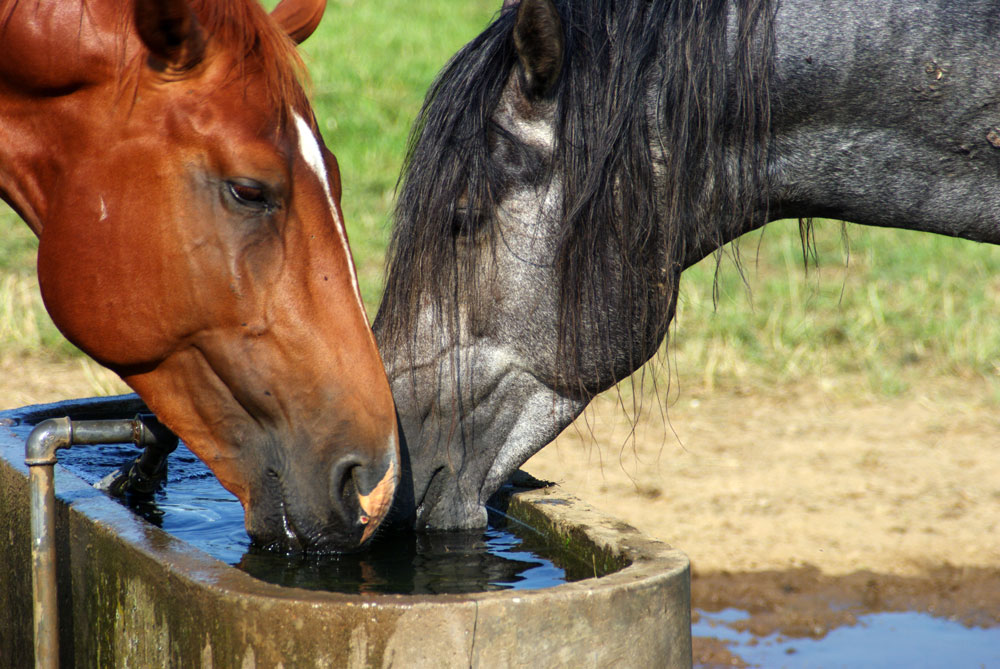
Water is the most essential nutrient available to animals. Domestic animals can go for many weeks without food, but they cannot survive even a few days without water.
Sufficient fluid is needed in the bloodstream to maintain blood pressure and circulation. Most chemical reactions within the body rely on water. Water is important for efficient intestinal digestion to generate energy and for transport and absorption of nutrients.
Body fluid enables transport and excretion of wastes. It is also important for regulation of body temperature through evaporative sweat. Body water is critical to maintain joint lubrication and hydration of cartilage, and to support lactation and gestational processes.
With dehydration, the intracellular fluid (within the cells) volume diminishes as fluid shifts out of the cells into the extracellular fluid volume (outside the cells in the bloodstream, lymph, body cavities). Even just dehydration of just 2% results in deterioration in performance.
It is important to offer clean water at all times. Digestion of the large amounts of fiber that horses eat each day requires large volumes of water to fuel normal metabolic processes and maintain body fluid levels. Drinking ample water ensures that the horse has sufficient saliva to lubricate chewed food in order to prevent choke while also providing sufficient intestinal fluid amounts for digestion.
Water consumption depends on many factors, such as the animal’s physical size, activity level, environmental temperature, dry matter intake, and the quality and temperature of the water.
For every pound of food consumed, a horse needs 2-4 pints of water. Horses fed a straight forage diet drink twice the amount of water as horses on a grain-supplemented diet. The more hay and roughage provided, the greater the water requirements. A high-fiber diet is instrumental in holding water within the large intestines, where it can be drawn upon during protracted exercise.


